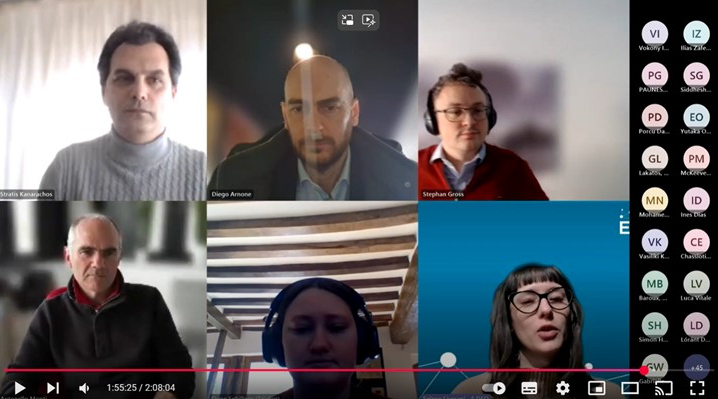
DECODIT participates in TwinEU first TwInsider session
The TwinEU project’s #1 TwInsider session on 6 March was the start of a series aimed to stimulate discussion on the challenges and opportunities of adopting digital twins in Europe’s electricity systems.
Opening the session Lóránt Dékány, communication coordinator of TwinEU, described its purpose as contributing to the development of the pan-European digital twin of the electricity system with the involvement of participants outside the 75 partner project consortium.
Addressing topics such as the EU digitalisation action plan and digital twin policies and standards, the DECODIT project was one of two – the other DEDALUS – along with TwinEU to be present to describe opportunities for digital twins – in DECODIT’s case for end consumers.
Describing the problem facing consumers of surging and volatile electricity and gas prices and limited consumer understanding of how to tap into the complex energy services landscape, Stratis Kanarachos, DECODIT project coordinator presented the project’s solution as a digital twin of the consumer/citizen.
Utilising the digital twin, the aim is to model and offer data driven personalised energy services, using the data to interact optimally with the consumer.
Such services will include energy and flexibility management, building assessment and green and energy efficiency renovations and financing through loan underwriting and project bundling.
Addressing obstacles such as a lack of incentives, data privacy, low digital literacy and lack of trust, the DECODIT digital twin is expected to overcome the obstacles and deliver benefits to future proofing homes.
“One can think of it as a reflection of the energy journey that we all take every day,” explained Kanarachos.
He adds that currently the DECODIT services are fragmented between different providers and the proposal is to share data between them to offer a holistic solution.
At the current stage in the project the use cases have been identified, a first set of scenarios have been developed and understanding is being gained on the data exchange requirements between the services.
“We expect in the project to move beyond the state-of-the-art but to have greater impact we need to collaborate with other projects that have developed solutions that could feed into ours,” Kanarachos concluded.

